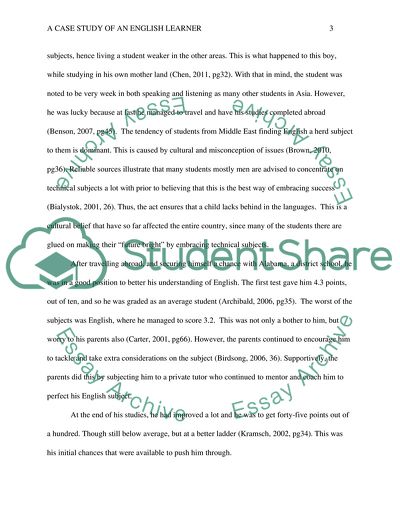Cite this document
(Language Learning Strategies Case Study Example | Topics and Well Written Essays - 3000 words, n.d.)
Language Learning Strategies Case Study Example | Topics and Well Written Essays - 3000 words. https://studentshare.org/education/1825367-a-case-study-of-a-learner
Language Learning Strategies Case Study Example | Topics and Well Written Essays - 3000 words. https://studentshare.org/education/1825367-a-case-study-of-a-learner
(Language Learning Strategies Case Study Example | Topics and Well Written Essays - 3000 Words)
Language Learning Strategies Case Study Example | Topics and Well Written Essays - 3000 Words. https://studentshare.org/education/1825367-a-case-study-of-a-learner.
Language Learning Strategies Case Study Example | Topics and Well Written Essays - 3000 Words. https://studentshare.org/education/1825367-a-case-study-of-a-learner.
“Language Learning Strategies Case Study Example | Topics and Well Written Essays - 3000 Words”. https://studentshare.org/education/1825367-a-case-study-of-a-learner.


